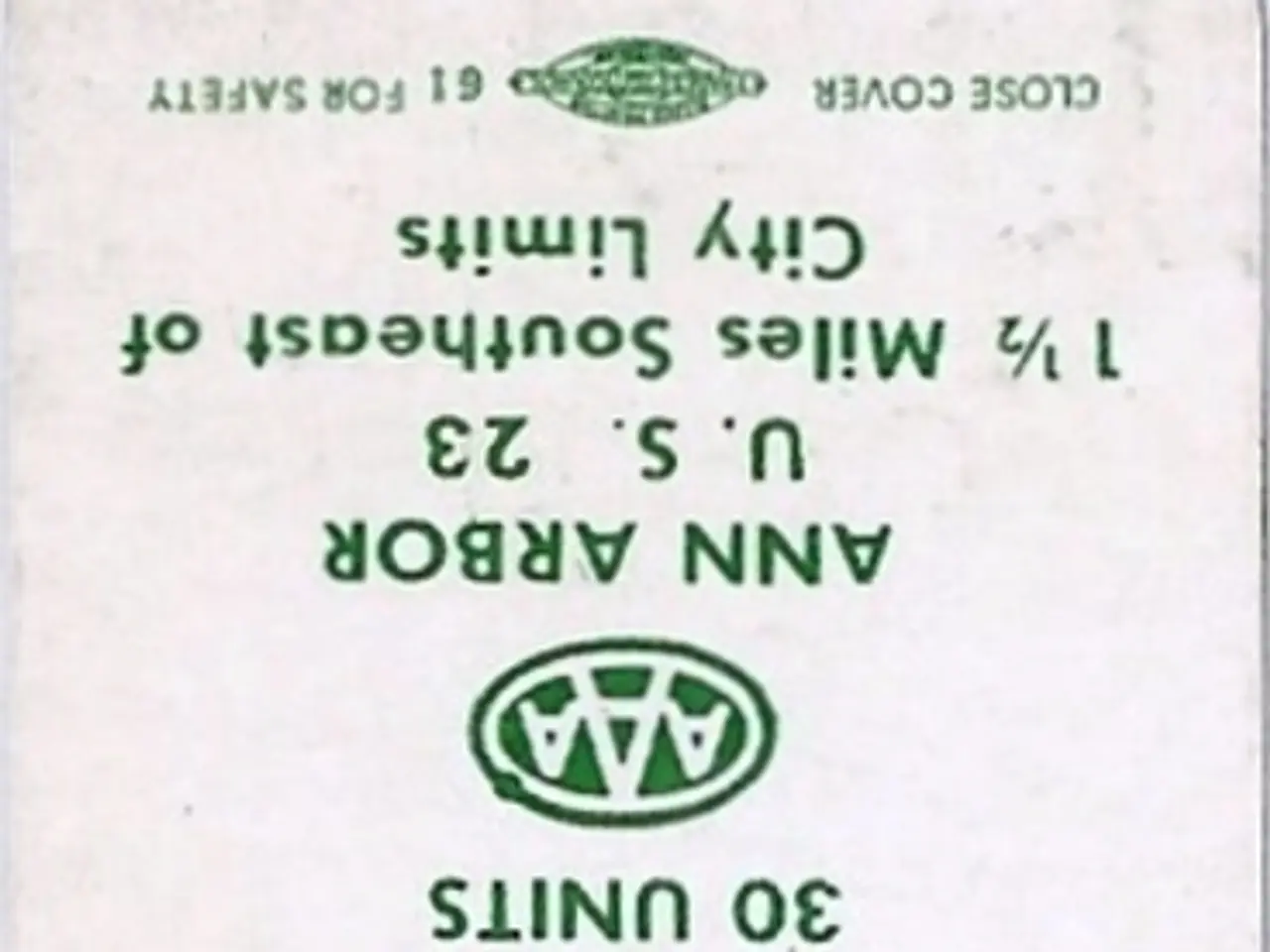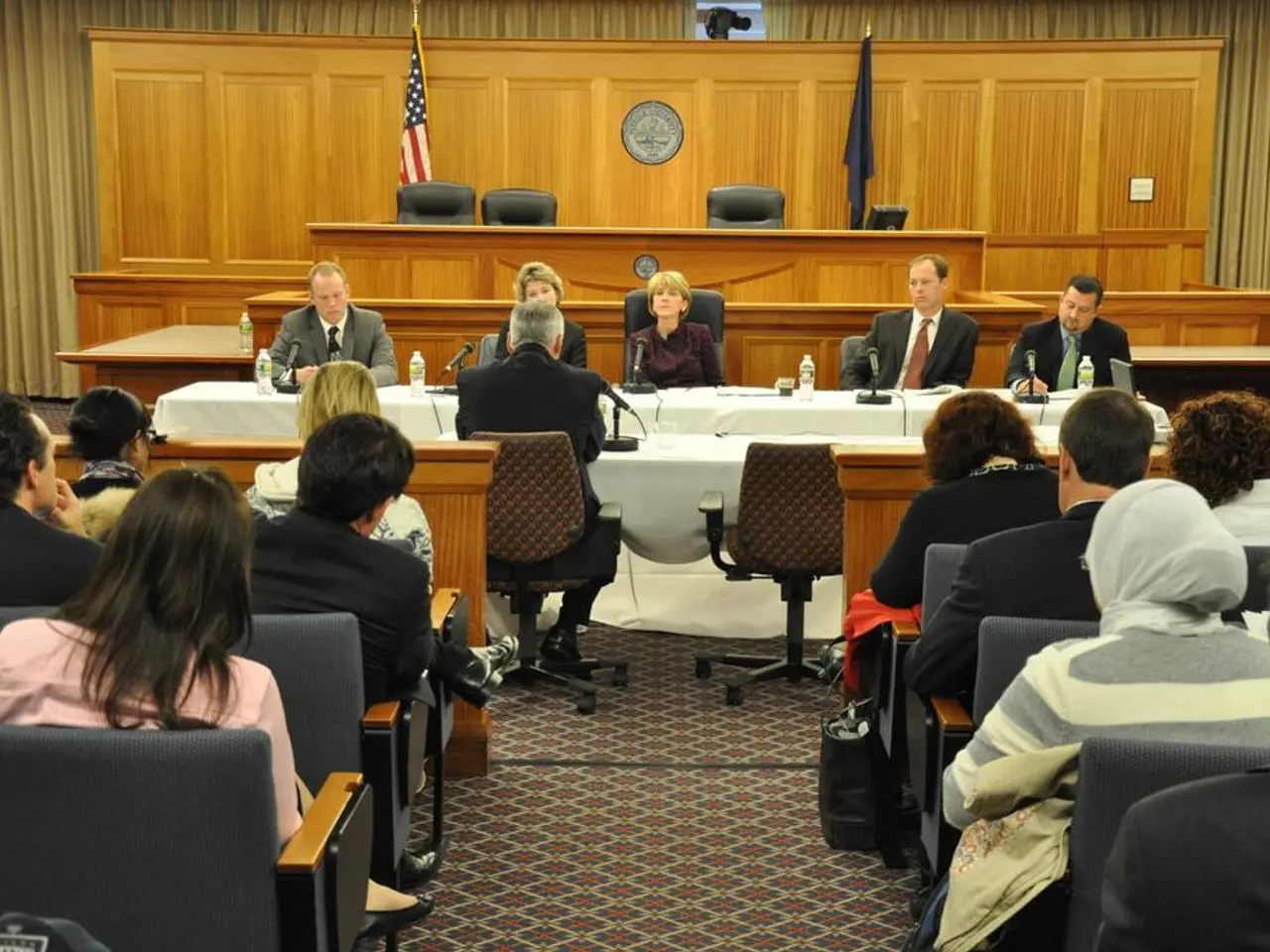Many areas globally express a desire to contribute to the tragedies signified by Tisha B'Av.
In the world of news sites, papers, and podcasts, anti-Semitic physical attacks and anti-Israel accusations have become a troubling prevalence. These accusations, often focused on Gaza and the wider Middle East, sometimes blur the lines between legitimate criticism and anti-Semitism.
Recent events have demonstrated how anti-Israel rhetoric can fuel or overlap with anti-Semitism, leading to increased hostility and violence against Jewish communities globally. For instance, French authorities halted the evacuation of Gazan students to France after discovering antisemitic social media posts by a Gazan student, which included Nazi imagery and calls to kill Jews everywhere [1][2].
This conflation often leads to the use of hostile stereotypes, conspiracy theories, or calls for violence against Jews. The Israeli-Palestinian conflict, particularly involving Gaza and Hamas, often intensifies such rhetoric. Antisemitic violence has been reported against Jewish communities in Australia, with an attempted arson on a synagogue, and in France, threats were graffitied on the home of a Muslim anti-extremism activist [3].
High-profile international figures, such as some United Nations officials, have been accused of antisemitic rhetoric under the guise of criticizing Israel, prompting sanctions by the U.S. government to counteract such hate speech [3]. Anti-Israel protests sometimes feature antisemitic symbols or chants, as noted outside the White House and at European events where far-right groups have invoked Nazi salutes.
Douglas Altabef, Chairman of the Board of Im Tirtzu and a Director of the Israel Independence Fund, believes that the growing demonization, delegitimization, and denigration of Israel will eventually swing back the other way. He suggests that the woes of the Jewish people throughout history could have been alleviated if they had a tether to their Divinely ordained home [4].
Tablatheef encourages the Jewish people to be thankful for their ability to recall their past calamities while sitting in the dirt of their Land. He believes that the key to the survival of the Jewish people is their sovereign existence in the Land of Israel and the State of Israel [5].
The most important message of Tisha B'Av, a day of mourning for Jewish people, is that the Jewish people are still here to remember and recount the calamities inflicted upon them. The hatred and genocidal intent attributed to the Jewish people today was also present at each event mourned in the past on Tisha B'Av [6].
In the future, the Jewish people will look back at this time, shake their heads, and marvel at how they were able to sustain themselves. The question for the condemners is what specific catastrophe should be added to the list of calamities remembered on Tisha B'Av in 2025 [7].
Being rooted in their Land, the Jewish people find empowerment, liberation, and the ability to clearly understand their purpose. Despite the woes they have faced, they have managed to bring themselves to a place where they can draw strength and resolve from their past calamities [8].
References:
[1] Le Monde, "France halts evacuation of Gazan students after antisemitic social media posts," 2021. [2] The Times of Israel, "French student visa revoked over antisemitic social media posts," 2021. [3] The Jerusalem Post, "US imposes sanctions on UN officials over antisemitic rhetoric," 2022. [4] Im Tirtzu, "Douglas Altabef: The key to Jewish survival is our sovereign existence in the Land of Israel," 2022. [5] Jewish News Syndicate, "Douglas Altabef: Sitting in the dirt of our Land, we must be thankful," 2022. [6] The Algemeiner, "Tisha B'Av: The Jewish people are still here to remember and recount the calamities inflicted upon them," 2022. [7] The Jewish Journal, "The question for the condemners is what specific catastrophe should be added to the list of calamities remembered on Tisha B'Av in 2025," 2022. [8] The Jewish Press, "Being rooted in our Land, the Jewish people find empowerment, liberation, and the ability to clearly understand our purpose," 2022.
- The troubling prevalence of anti-Semitic rhetoric in discussions about Israel and the Middle East, as seen in the case of the Gazan student's antisemitic social media posts, has the potential to escalate into physical violence against Jewish communities worldwide.
- The Israeli-Palestinian conflict, particularly its impact on Gaza and the actions of Hamas, often magnifies the antisemitic discourse, with some international figures using this conflict as a platform to spread hate speech under the guise of critiquing Israel.








